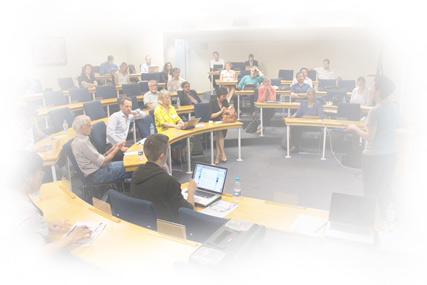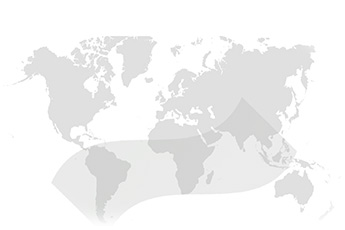OER Integration for course development
Project overview
Project outputs
General objective: This study investigates the operational processes involved in course development using available online multimedia OER.
Specific objective: To study the findability, usability levels, ways of reusing OER, cost/time efficiency, conceptual understanding of OER, attitude towards OER, and quality of learning materials.
Research questions:
- To what extent were the OER search team and course developers in this study able to search and find relevant OER materials?
- What are the competencies required by course developers for effectively integrating OER in the development of course materials?
- What are the different ways in which the OER have been reused?
- Will course materials developed by integrating OER be more cost-efficient?
- Will the use of OER-integrated course materials expected to be of high quality from learners’ perspective?
Overview
Training and ongoing professional development of teachers has been one of the priority areas attracting the attention of funding agencies when initiating large-scale OER projects. OER areregarded as having the potential to create and adapt high quality teaching and learning materials with relatively low cost for a given context. However, there is inadequate research evidence regarding the process of reuse and integration of OER for designing and developing courses.
A number of research studies have attempted to understand the process of use, reuse, and adaptation of OER for a given classroom context or for developing new course materials in the online distance learning (ODL) mode. A review of findings of these studies which probed experiences of individual teachers using OER in face-to-face teaching and distance education, demonstrates that good quality and a variety of open multimedia learning resources can make a positive impact in the teaching and learning process. There is, however, a need to have more evidence about the quality and use of these resources and develop workable techniques and models of OER integration for various educational purposes and situations.
This research project investigated the operational processes involved in the development of self-learning materials by integrating available OER in the development of a postgraduate course on “Research Methodology in Education”.
The study considered and adopted a conceptual framework based on the work of Okada, Mikroyannidis, Meister & Little (2012), which includes a number of ways of using OER at four different levels, namely: recreate content and contribute to new productions; adapt part of the content; adopt same content, but adapt structure, format, interface or language; and adopt same content (whole, part or combination).
The main research findings of the project are that the OER search team and course developers could search, discover and download adequate web resources, both textual and multi-media materials, relevant to the course content. However, a large chunk of these materials, especially videos, were subject to copyright and did not have open licences for reuse and modification.
The major supportive competencies for effective reuse and integration of OER are subject content expertise, Content Specific Pedagogy , Local Learning Environment, OER Content Awareness, OER Reuse Expertise, IT Skills and Language & Writing Skills. The reuse process included reuse as is, adaptation, remixing, recreation and new creation leading to an integration process resulting in the new course. Course developers also revealed that although reusing OER for course development consumed time, with training and experience and support from an OER search team the OER integration process could be more cost efficient and time efficient. Sample units of the self-learning course package was tried out in two groups of learners (educators and teacher trainees). These two groups also gave higher ratings on all aspects of quality on a quality assessment scale.
Being an exploratory case study the findings cannot be considered as conclusive and generalizable, but the study contributes to further hypothesising on OER reuse and integration leading to formulation of more intensive studies in more controlled situations
Reference
Okada, A., Mikroyannidis, A., Meister, I., &Little, S. (2012). ”Co-learning” – collaborative networks for creating, sharing and reusing OER through social media. In: Cambridge 2012:Innovation and Impact – Openly Collaborating to Enhance Education, 16-18 April 2012, Cambridge, UK.
Menon, M., Bhat, V., Mathew, R. & Bhandigadi. P. (2016). A study on the adoption and integration of OER materials in self-instructional course development. Paper presented at the 8th Pan-Commonwealth Forum on Open Learning (PCF8), 27-30 November 2016. Kuala Lumpur, Malaysia. Retrieved from: http://oasis.col.org/handle/11599/2535
Menon, M. & Phalachandra, B. (2017). A Study on Cost-Efficiency and Quality of OER Integrated Course Materials. Paper presented at Open Education Global Conference, 8-10 March 2017. Cape Town, South Africa. Retrieved from https://www.slideshare.net/oeconsortium/a-study-on-costefficiency-and-quality-of-oer-integrated-course-materials
Videos
Menon, M. (2017). OER integration for course development (video). Retrieved from https://www.youtube.com/watch?v=8saAjMRY-Iw&index=9&list=PLqSYUJvxD-UDZPS5NwTJixYZqHTgYu7i2



